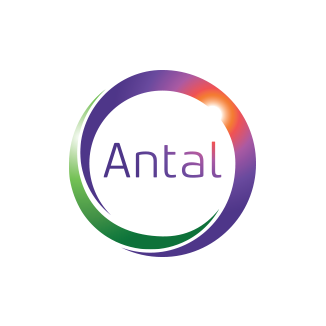Case Studies
International Animal health company Antal Hungary &, Antal Netherlands
Sharing: Antal Hungary – Csaba Patko & Antal Netherlands – Johan Roxs From Csaba Patko's perspective: How did you come to work with this client originally?
The client approached 5 headhunters in Hungary with an urgent and critical KAM role last year. They had advertised the position, but no relevant candidates applied. I, (Csaba Patko), had a Teams meeting with the HR Manager where I stressed the relevance of the direct search method in such cases. After many discussions and meetings, Antal was eventually selected and signed an exclusive contingency deal.
The challenge was then to dive into the world of bovine genetics, and, to be honest, my knowledge of cow insemination was minimal! However, our office presented 2 candidates in approx. 4 weeks and the client was very happy with that.
Challenges of sharing or dealing with the client:
There were then internal changes with the client as the HR Manager left the company during the process, so we needed to accommodate some swift changes. It was not too long before I had the chance to discuss the company’s growth plans with the new HR in charge. The Distribution Manager role was coming up in the Netherlands. I immediately recommended our international service. I approached Johan to collaborate and then introduced him to the client.
From Johan Rox's perspective:
Working together and sourcing the candidates: I, (Johan Roxs), was happy to work with Csaba when he approached me to help conduct a local search. I have learnt that it is preferable when you approach candidates, to do so in their own language, as the nuances of the job are often difficult to explain in a foreign language. Even if you can explain, you never know how the candidate receives this message.
As the required expertise – diary genetics - is not something I am fully confident with, I started to read and search for companies who were in this field. Also I gathered university names. When I felt confident enough with my background research, I started to exchange with candidates. It is a super niche market, so there was a limited amount of qualified candidates!
The deeper the insight into the client - the better: After interviewing one candidate, I understood that I was speaking to the right type of person, but I did not know the full story about the client. I was not able to sell the role to the candidate as there were gaps in my understanding of the client. I contacted a client’s business manager to discuss the work, the difficulties and get a deeper level of information on the company. With more information on the client, project, and opportunities, I persuaded another 3 candidates to a more in-depth interview with me. 2 of them rejected the job as they felt the opportunity was not broad enough for them.
However, one of them wanted to continue his career with a role, similar to this one, where he could manage a team. This was not in scope of the open role. Shifting the clients focus: I shared this feedback with the client and still added that candidate on the short list. I explained that the candidate was initial interested but he rejected the role due to the lack of management responsibility.
As the other candidate appeared to be a bit to junior for the role, the business manager reconsidered and decided to start the conversation with the candidate who expressed the team management aspirations. As their discussion progressed, the manager admitted that the scope of his own role was currently a bit too large – he was very pleased to see that he could delegate duties and direct part of his team to someone else. Their discussion developed and the role eventually evolved into a completely new job specification, to fit the manager and the new recruit’s expectations.
Offering a consultive service: As this company is French and there is no legal entity in The Netherlands, we helped them with the salary and package normalities in The Netherlands. Following numerous negotiation discussions, I was able to improve the package for the candidate whilst assuring the candidate remained connected.
The company also agreed to soften the non-compete clause so this was more in line with local labour regulations, as in the initial proposal, the restrictions were quite fierce, which is not common nor legally justifiable in The Netherlands. Due to the number of contractual changes, there was a small delay as the legal department took 2 weeks to formalize the contract. Thankfully, this was eventually signed off on by all parties.
Reflection: Csaba concludes, “Johan has done a superb job. He would tell you honestly that it has not been easy, but we made a placement.” Johan concludes, “So indeed, it was a long run. Very difficult due to the lack of qualified candidates. It was also the process where I could give the most value to the client. This case clearly shows how international cooperation can help find the best candidate. I am sure that no one could have found this candidate from abroad, only because the local ‘feel and touch’ is a need for processes like these. “ Written by: Csaba Patko, Managing Partner, Antal Hungary Johan Roxs, Managing Partner, Antal Netherlands
Recent Posts
- Why 2026 Will Be the Year of “Selective Careers,” Not Job Hopping By Antal International
- What FCA Scrutiny Is Doing to Hiring Decisions in UK Banks By Imo Etuk
- January Reset: What the First Days of 2026 Reveal About the Job Market By Antal International
- Why UK Banks Struggle to Hire Heads of Compliance and MLROs By Imo Etuk

